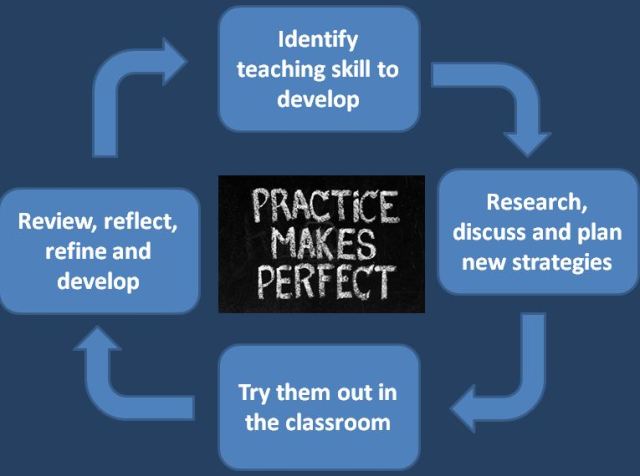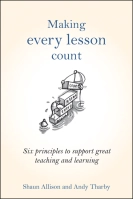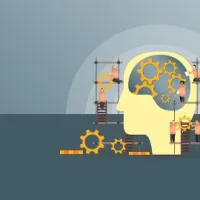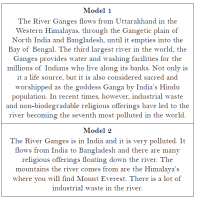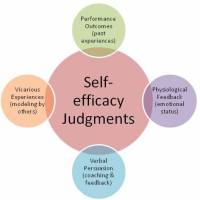 As another school year comes to an end, I thought it would be worth summarising a number of key ideas that have shaped my thinking this year. Many of them have come via twitter and/or the many excellent blogs that exist out there – so I am eternally grateful for all the tweeters and bloggers who keep me thinking and inspired.
As another school year comes to an end, I thought it would be worth summarising a number of key ideas that have shaped my thinking this year. Many of them have come via twitter and/or the many excellent blogs that exist out there – so I am eternally grateful for all the tweeters and bloggers who keep me thinking and inspired.
The energy and excitement that came out of the 2012 London Olympics is hard to forget. One of the most successful GB teams was the cycling team, and their coach Dave Brailsford. The success of the team was put down largely to the idea of marginal gains – looking at every aspect of cycling and making slight improvements. The idea being that the combined effect of these small improvements, will result in a big overall improvement in performance.
The same theory can of course be made to teaching. By making small adjustments to our practice, we can make a big difference to the learning of our students. A simple, but highly effective idea.
See Zoe Elder’s brilliant blog on this and another article here.
In November 2012 Tom Sherrington (@headguruteacher) spoke to the West Sussex Deputies Network. During his presentation he spoke about the idea of rainforest thinking. Put simply, it is about removing the shackles that constrain teachers such as the rigid 3 part lesson, and allowing them to flourish with varied and creative approaches to teaching and learning – so moving away from the formulaic, inhibitive and stifling approach of the plantation to the varied, interesting and exciting rainforest.
This is a great message for teachers on the path to outstanding – take risks, try things out and enjoy being creative!
Read more here.
 DELIBERATE PRACTICE & THE EXPERT TEACHER
DELIBERATE PRACTICE & THE EXPERT TEACHER
There are a number of books that have all focused on the ‘myth of talent’. Matthew Syed explores this in his book ‘Bounce’. He makes a compelling case against being ‘born’ with talent and argues instead that people become ‘experts’ in their field by sustained and deliberate practice. In ‘Outliers’ Malcolm Gladwell claims that to become an expert in any field, you need to put in 10 000 hours of practice.
Again, this is really relevant for teachers. If we are to improve our classroom practice, we should embark on a cycle of deliberate practice, focused on an area of pedagogy that we want to improve – as outlined below:
Coaching is a great vehicle for this (see related article). This of course also has relevance for ours students. Our teaching should provide them with the opportunity to practice key skills, in order to master the learning.
Read Alex Quigley’s (@HuntingEnglish) brilliant blog article on this.
Over the Easter break I read Carol Dweck’s ‘Growth Mindset. Again, a fairly simple principle – having a growth mindset as opposed to a fixed mindset, means that by embracing challenges, learning from setbacks and criticism and learning from others, we can all develop our intelligence:
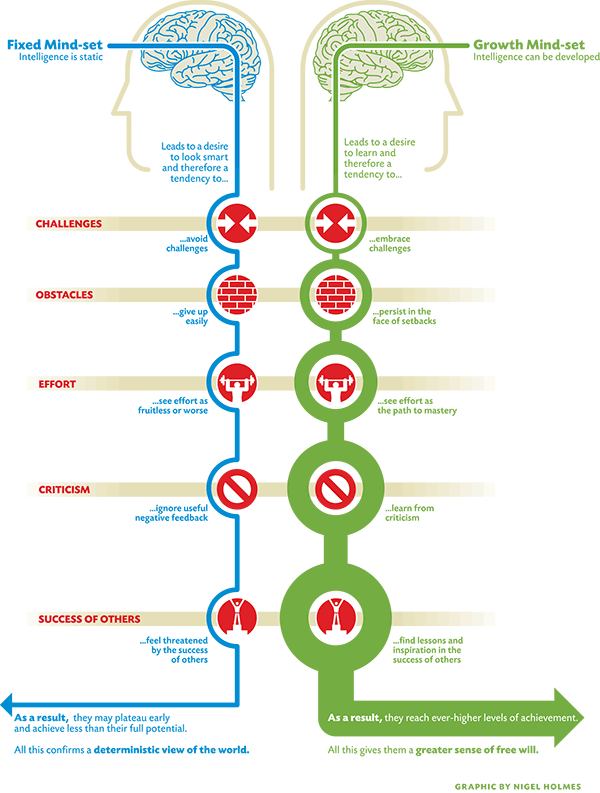 Again this has implications for us as teachers and the students we teach. As teachers we should use feedback and find inspiration from others to continually improve our practice. We should then also look to move our students from a fixed to a growth mindset – believing that they can develop their intelligence.
Again this has implications for us as teachers and the students we teach. As teachers we should use feedback and find inspiration from others to continually improve our practice. We should then also look to move our students from a fixed to a growth mindset – believing that they can develop their intelligence.
I wrote a blog article on how this can be developed in our teaching.
As the year has progressed I have become clear in my own mind about ‘expert teaching’. It focuses on 4 key things – Questioning, feedback, independence and challenge.
The very best teachers are great at questioning and giving clear, precise and helpful feedback to their students. This encourages students to think deeply about the learning. They also have the highest expectations of all the students they teach, ensuring that they are all challenged. Lastly, by focusing on these aspects, they develop independence within their students. This doesn’t meant that students are left to work alone, with no input from their teacher. It means that because of effective explanations and modelling by the teacher, students are able to engage with the learning effectively and become immersed in it – and are so less reliant on the teacher. The teacher continues to use feedback though to ensure the learning stays ‘on track’.
In terms of challenge, this extract from Jackie Beere (@jackiebeere) is pretty compelling:
In summary, 2012-13 has been a great year – thanks to the thousands of teachers and leaders who tweet and blog about their thoughts, strategies and ideas.
I look forward to further inspiration next year.
Have a great summer!



